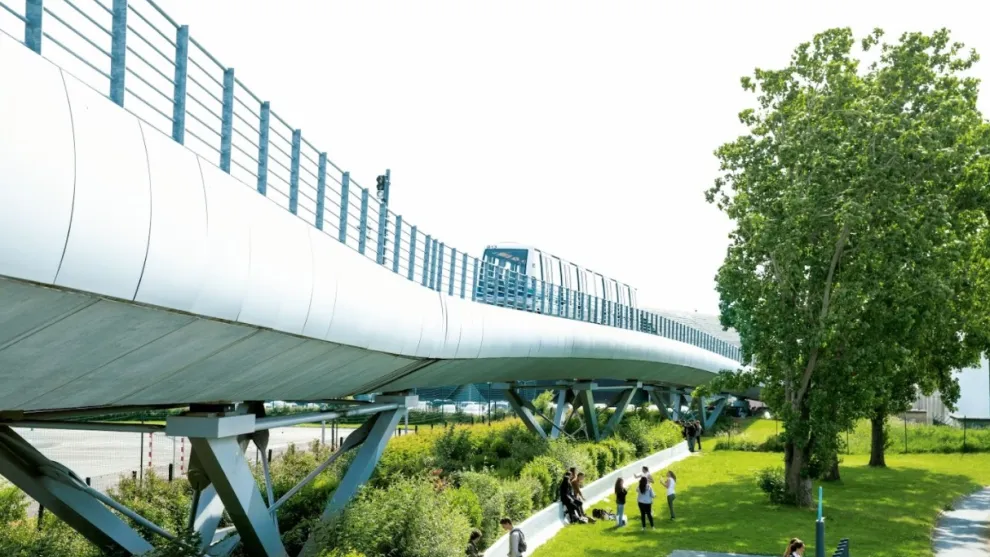Green mobility at the heart of sustainable infrastructure
We have a once in a generation opportunity to put climate action at the heart of our global recovery. There is a wave of unprecedented stimulus packages around the world, with many governments embedding sustainability criteria into their infrastructure stimulus plans.
Smart infrastructure plays a key role in this transformation and can support countries to achieve their net zero goals. Now is the time to act and Holcim is ready for this great rebuilding effort with our green building solutions.
At Holcim, we have expertise in building essential infrastructure, such as highways, ports and subways. We provide high-performance material solutions that are optimized for their construction. With our expertise, we design materials that are ecologically sound and smart - reducing carbon emissions and minimizing waste while using digital technology to increase efficiency. We can build circular, by recycling materials where possible, and use green concrete and cement, such as ECOPact and ECOPlanet, to enable low carbon construction.
Driving circular construction for metros and tunnels
With transport Infrastructure projects, we actively recycle construction and demolition waste to keep materials in use as long as possible. For example, we recycled materials used in the new Grand Paris Express underground into low carbon concrete and aggregates for use in roads. We did the same with Switzerland’s Gotthard tunnel, recycling materials from the world’s longest and deepest tunnel.
"Green mobility plays a key role in this transformation and can support countries to achieve their net zero goals. Now is the time to act."

Designing smarter roads with industry-leading digital materials platform ORIS
When building roads there is a complex set of data that needs to be considered to create the greenest possible solution. Our combined road and material expertise allows us to analyze a series of parameters such as local resources, expected traffic, the lifespan of the project, and long-term weather conditions, using digital tools such as the ORIS platform, powered by IBM.
"With digital technologies like ORIS, we can accelerate the transition to building and maintaining low-carbon and more sustainable roads around the world."
When building roads there is a complex set of data that needs to be considered to create the greenest possible solution. Our combined road and material expertise allows us to analyze a series of parameters such as local resources, expected traffic, the lifespan of the project, and long-term weather conditions, using digital tools such as the ORIS platform, powered by IBM. Holcim’s expertise in infrastructure meant that we could optimize the designed solution to deliver exceptional performance for that specific terrain.
Building resilient ports combining high-performance materials with sustainability
Holcim’s expertise in infrastructure meant that we could optimize the designed solution to deliver exceptional performance for that specific terrain.
We are part of over 30 international port infrastructure projects - that combine high performance with sustainability - in over 25 countries including Australia, Ecuador, Madagascar, France and the UK.
"With our low carbon solutions we are ready to play our part in our world’s once-in-a-generation great rebuilding effort."
In Madagascar, for example, the Toamasina Port uses a sustainable cement specifically designed to be resistant to the marine environment. It offers improved durability whilst also reducing the overall carbon emissions by 30 when compared with traditional cement. In our work on ports in Costa Rica, Morocco and France, we are also using high-performance, low-carbon materials.
Holcim continues to invest more than half of its research and development budget in finding sustainable and innovative building solutions. Putting climate action at the heart of our global recovery, we are enabling smart infrastructure that is good for people and the planet, increasing human opportunity and continuing to build progress.

Credit: Nicolas Joubard, Metro STAR Keolis Rennes






